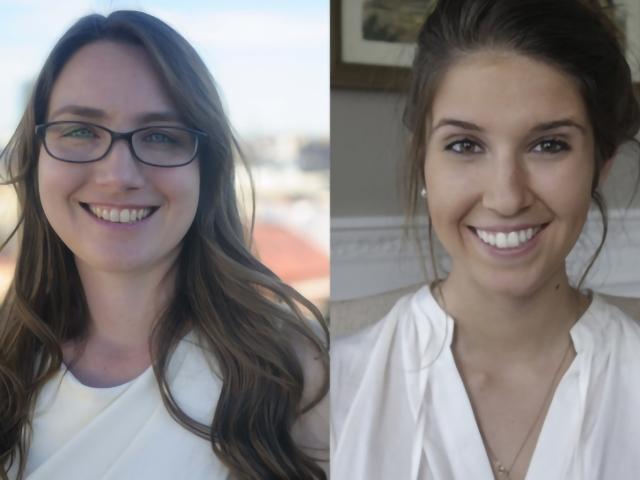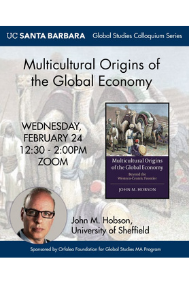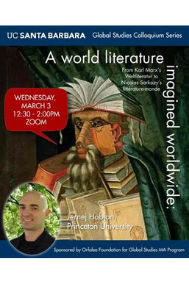Congratulations to Dr. Vladimir Hamed-Troyansky on his new book, “Empire of Refugees: North Caucasian Muslims and the Late Ottoman State”
Please see this article in UCSB's The Current to learn more: https://news.ucsb.edu/in-focus/new-book-reveals-ottoman-origins-refugee-resettlement-middle-east
Congratulations to Dr. Vladimir Hamed-Troyansky on the Stanford Humanities Center Fellowship!
To learn more about Dr. Hamed-Troyansky's work through the Stanford Humanities Center Fellowship, please see this article:
Global Studies PhD Student Eugene Riordan, Jr Receives GSA Excellence in Teaching Award AND Dixon-Levy GSA Service Award

Please join us in celebrating Eugene and the other winners at 7pm on May 31 (register here). To learn more about these awards, please see this website.
Global Studies PhD Student Mariah Miller and Anthropology PhD Student MacKenzie Wade Co-teach INT CS 130: Alternative Foods; Alternative Economies in Winter 2022

Mariah Miller and MacKenzie Wade
Miller and Wade created this course through a collaboration with the College of Creative Studies and Graduate Division, thorough the Crossroads 2.0 Program. Please see this link for more information on the course and the Crossroads 2.0 Program.
Global Studies PhD Student Maya Zaynetdinova Awarded IHC Public Humanities Graduate Fellow

Maya Zaynetdinova is a Ph.D. student in the Department of Global Studies, an educator, and content creator. She is researching and writing a blog about sociocultural history of the decentralized technology of blockchain and its impacts on global societies. Maya is particularly interested in blockchain’s potential for environmental activism and sustainable change. She aims to make this complex technology more accessible to the public through her writing and public presenting. Read her IHC article here.
GLOBAL STUDIES COLLOQUIUM SERIES
The Department of Global Studies' Colloquium Series is a lecture and lunch series, which has been made possible by the generosity of the Orfalea Endowment for the Master's Program in Global Studies. The Colloquium Series strives to open and explore a wide range of interdisciplinary debates and their interaction and engagement with the global, hosting new guest speakers each quarter from UCSB and beyond. Professor Jan Nederveen Pieterse is currently the Director of the Colloquium Series. For more information, please contact our Orfalea Colloquium Fellow Brett Aho at: brettaho@ucsb.edu
When? Various Wednesdays, 12:30-2pm
Where? Zoom link https://ucsb.zoom.us/j/84246564996 (talks will be recorded and posted on our YouTube channel)
Who? The Global Studies Colloquium Series is open to everyone interested in attending the talks.
Special Presentation: Miguel Fuentes' Research Software
Through his higher education programs, Miguel Fuentes has learned how different software can make research give him visually useful results, more in depth analysis and simply easier paths towards writing. Miguel is offering this introductory course to some (or all) the research tools he's encountered through the years: from software to find the literature he needs to write, software that make writing easier —as they break down the parts of an essay or a dissertation—, to software that help him catalog and analyze data in a systematized way. The presentation's goal will be three-fold: 1) skim through different software, 2) go more in depth on how to start using the software, and 3) dialogue with participants on how to use this software according to your needs.
The ability to use qualitative and quantitative methods landed Miguel the job he currently has at the Williams Research Institute, and using this software made it easier to develop advanced skills to do so. If you're entering the job market soon, these are tools that can definitely help make your case during the selection process! If you're an experienced researcher, these tools can make your writing and analysis easier, or can help your RAs manage your data more efficiently. In any case, software can be as useful as you want it to be.






